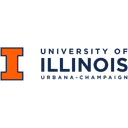Master cloud computing fundamentals, from virtualization to storage systems, with hands-on experience in major cloud platforms.
Master cloud computing fundamentals, from virtualization to storage systems, with hands-on experience in major cloud platforms.
This course cannot be purchased separately - to access the complete learning experience, graded assignments, and earn certificates, you'll need to enroll in the full Cloud Computing Specialization program. You can audit this specific course for free to explore the content, which includes access to course materials and lectures. This allows you to learn at your own pace without any financial commitment.
4.3
(832 ratings)
55,611 already enrolled
Instructors:
English
پښتو, বাংলা, اردو, 4 more
What you'll learn
Master cloud infrastructure and service models
Understand virtualization and container technologies
Implement various cloud storage solutions
Work with major cloud service providers
Deploy applications using cloud platforms
Skills you'll gain
This course includes:
10.6 Hours PreRecorded video
5 quizzes
Access on Mobile, Tablet, Desktop
FullTime access
Shareable certificate
Closed caption
Get a Completion Certificate
Share your certificate with prospective employers and your professional network on LinkedIn.
Created by
Provided by

Top companies offer this course to their employees
Top companies provide this course to enhance their employees' skills, ensuring they excel in handling complex projects and drive organizational success.





There are 6 modules in this course
This comprehensive course explores modern cloud computing technologies and infrastructure. Starting with foundational concepts, students learn about virtualization, containers, and cloud service models. The curriculum covers major cloud platforms (AWS, Google, Microsoft), advanced topics like serverless architecture, and various cloud storage solutions. Through detailed modules on infrastructure, platform services, and storage systems, students gain practical knowledge of cloud computing applications and their enterprise implementation.
Course Orientation
Module 1 · 1 Hours to complete
Introduction to Cloud Computing
Module 2 · 2 Hours to complete
Foundations: Containers, Virtual Machine, JVM
Module 3 · 4 Hours to complete
MAAS, PAAS, Web Services
Module 4 · 3 Hours to complete
Storage: Ceph, SWIFT, HDFS, NAAS, SAN, Zookeeper
Module 5 · 2 Hours to complete
Course Conclusion
Module 6 · 25 Minutes to complete
Fee Structure
Instructors
Data Engineering Manager at Capital One, Adjunct Research Assistant Professor of Computer Science
Dr. Reza Farivar is a Data Engineering Manager at Capital One and an Adjunct Research Assistant Professor of Computer Science at the University of Illinois Urbana-Champaign. He earned his PhD in Electrical and Computer Engineering from the University of Illinois in 2012, where his research focused on cloud computing, big data platforms, and iterative algorithms. His expertise extends to customized algorithms for computational accelerators like GPUs.In addition to his academic role, Dr. Farivar co-founded Accelerated Genomics, a startup dedicated to developing GPU-accelerated big data algorithms in bioinformatics. He has also worked as a Senior Software Development Engineer at Yahoo, contributing to the development of their big data platforms and frameworks such as Apache Storm and Spark.Dr. Farivar teaches several courses on Coursera, including "Cloud Computing Applications, Part 1: Cloud Systems and Infrastructure" and "Cloud Computing Applications, Part 2: Big Data and Applications in the Cloud." His work in both industry and academia reflects a strong commitment to advancing the fields of cloud computing and big data, making significant contributions through research, teaching, and practical applications.
Professor of Computer Science
Roy H. Campbell is a distinguished Professor of Computer Science at the University of Illinois Urbana-Champaign, where he leads the System Software Research Group and serves as the Sohaib and Sara Abbasi Professor. He is also the director of the NSA Designated Center of Excellence and the Center for Advanced Research in Information Security (CARIS). With a Ph.D. obtained from Newcastle University in 1976, Campbell has made significant contributions to the fields of operating systems, cloud computing, and security.Throughout his career, Campbell has been actively involved in research focusing on cloud computing systems and applications, particularly in relation to security and distributed systems. He has received numerous accolades for his work, including the NSF CAREER award in 2005. His teaching includes popular courses such as "Cloud Computing Applications," which covers both cloud systems and big data applications. Additionally, he has played a pivotal role in shaping educational programs related to information assurance and security.Campbell's extensive experience includes serving as program co-chair for leading conferences in distributed systems and contributing to various initiatives aimed at enhancing cybersecurity education. His commitment to research and education continues to influence both students and professionals in the field of computer science.
Testimonials
Testimonials and success stories are a testament to the quality of this program and its impact on your career and learning journey. Be the first to help others make an informed decision by sharing your review of the course.
Frequently asked questions
Below are some of the most commonly asked questions about this course. We aim to provide clear and concise answers to help you better understand the course content, structure, and any other relevant information. If you have any additional questions or if your question is not listed here, please don't hesitate to reach out to our support team for further assistance.





